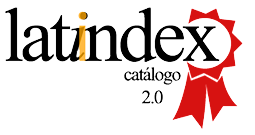Effects of a group psychotherapeutic intervention on the self-concept of trans persons living in Panama
Keywords:
Trans people, Self-concept, Psychotherapy, group interventionAbstract
The objective of this research work is to demonstrate the effects of a group psychotherapeutic intervention in trans people residing in Panama City in relation to the dimensions of self-concept. For this research, the methodology used was quantitative. The research design used is pre-experimental with pretest - posttest measurements of a single group. In this design, a single group is selected in a non-random manner, which is why it is indicative of a pre-experimental design (Fontes et al., 2012). Seven trans people, members of the Trans-Panama Men Organization, residing in Panama City, were taken as a sample to carry out the group psychotherapeutic intervention. An intervention of 5 weekly sessions was applied, lasting 2 hours (120 minutes), and with the intention of determining if there was an improvement in self-concept, the Self-Concept Questionnaire form 5 (AF5) was applied before and after completing with group intervention. The result of the study shows that in all dimensions there was an increase in the average percentile, especially for the academic-labor dimension p=.028 and the social dimension p=.018, while very slight in the physical, family and emotional dimension.
Downloads
References
d Psychiatry, 24(2), 388–401. https://doi.org/10.1177/1359104518825279
Craven, R. G., & Marsh, H. W. (2008). The centrality of the self-concept construct for
psychological wellbeing and unlocking human potential: Implications for child and
educational psychologists. Educational and Child Psychology, 25(2), 104–118.
Defensoría del Pueblo de la República de Panamá. (2021). Informe sobre los incidentes de
discriminación hacia la comunidad trans en el contexto de COVID-19.
Dickey, L. M., & Loewy, M. I. (2010). Group work with transgender clients. Journal for
Specialists in Group Work, 35(3), 236–245. https://doi.org/10.1080/01933921003739512
Fontes S. et al (2012). Fundamentos de investigación en Psicología. España: UNED.
Heck, N. C. (2017). Group psychotherapy with transgender and gender nonconforming
adults: Evidence-based practice applications. Psychiatric Clinics of North America,
(3), 477–487. https://doi.org/10.1016/j.psc.2016.10.010
Hernández, R. (2016). Metodología de la investigación. McGraw-Hill.
Hernández Sampieri, R., Fernández Collado, C., & Baptista Lucio, P. (2014). Metodología de
la investigación (6.ª ed.). McGraw-Hill.
Meyer, W. J. III. (2002). The role of psychotherapy in the treatment of gender identity
disorder. In R. H. McClintock (Ed.), Transgender Care: Recommended Guidelines, Practical
Resources, and Personal Perspectives (pp. 27–36). National Center for Gender Identity.
Naciones Unidas, Oficina del Alto Comisionado para los Derechos Humanos. (2015).
Discriminación y violencia contra individuos por su orientación sexual e identidad
de género (Informe A/HRC/29/23). Naciones Unidas.
Pérez-Fuentes, M. C., Gázquez, J. J., Martínez, A., & Molero, M. (2019). Emotional
Intelligence, Self-Efficacy, and Empathy as Predictors of Overall Self-Esteem in
Nursing by Years of Experience. Frontiers in Psychology, 10, 2035.
https://doi.org/10.3389/fpsyg.2019.02035
Pineda, C., & Henao, J. (2018). La discriminación y el autoconcepto en personas trans.
Revista de Psicología, 10(2), 115–130.
REDLACTRANS. (2012). La noche es otro país: Impunidad y violencia contra las
defensoras de derechos humanos transgénero en América Latina. Alianza
Internacional sobre el VIH/SIDA.
Reyes, E. B. (2007). Método clínico. Algunos aspectos esenciales de sus etapas. Redalyc.
https://www.redalyc.org/articulo.oa?id=551757262020
Skrapec, C., & MacKenzie, K.R. (1981). Psychological self-perception in male
transsexuals, homosexuals, and heterosexuals. Arch Sex Behav, 10, 357–370.
Vinogradov, S., & Yalom, I. D. (1996). Concise guide to group psychotherapy. American
Psychiatric Press.
Vinogradov, S., & Yalom, I. D. (2005). Concise guide to group psychotherapy. American
Psychiatric Publishing
Downloads
Published
How to Cite
Issue
Section
License

This work is licensed under a Creative Commons Attribution-NonCommercial-ShareAlike 4.0 International License.







